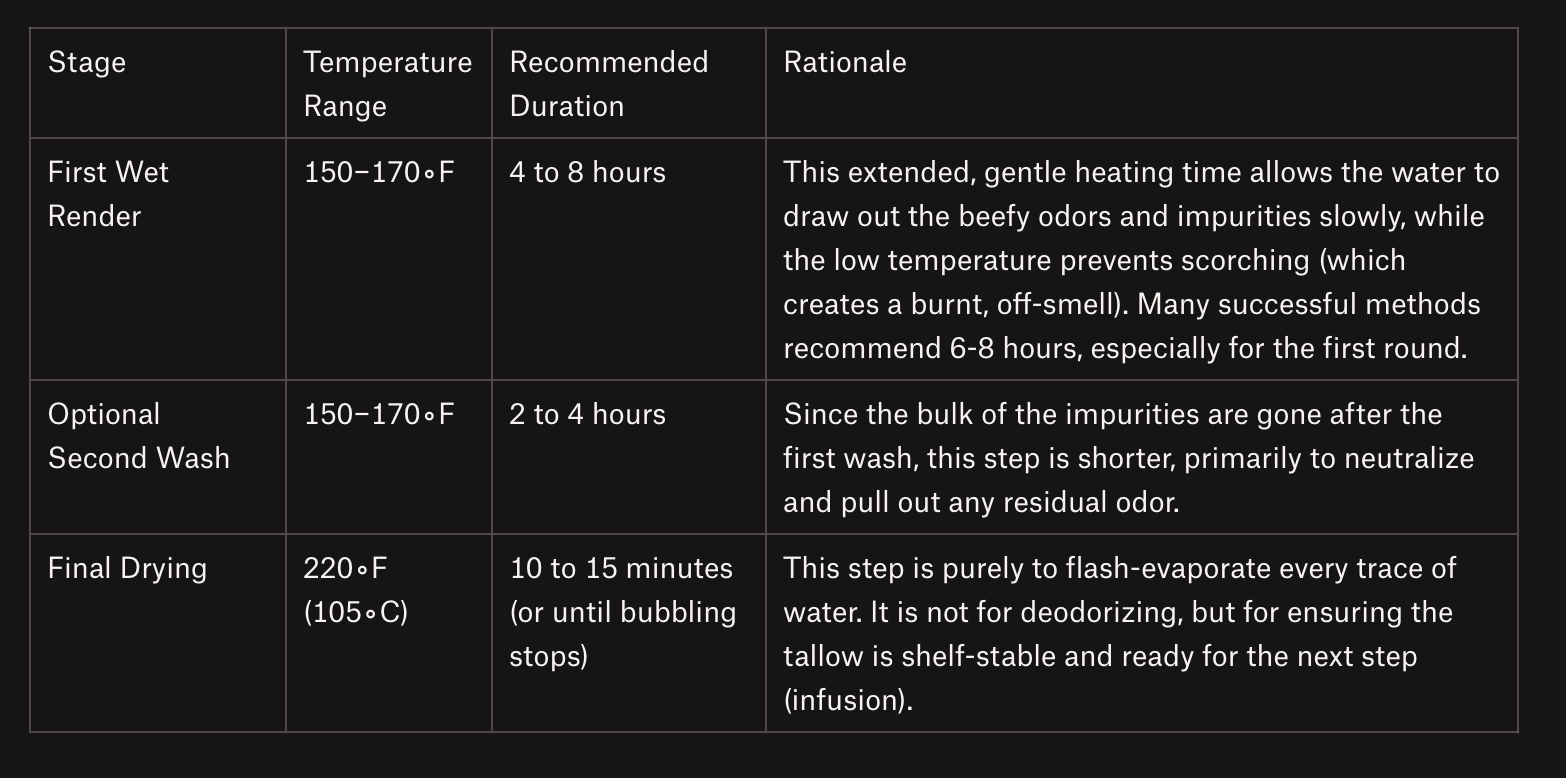De-odorizing Beef Tallow
The key here is to go very low temp, so you do not BAKE the smell into your lotion!
🌡️ Rendering Temperature Guidelines
Target range: 150–170 °F (65–75 °C)
Low enough to melt the fat gently.
Prevents the proteins, membranes, and connective tissue from cooking and releasing strong beef notes.
Timing:
Grated tallow should fully melt in 30–60 minutes at 150–170 °F.
Small diced pieces (¼–½ inch) takes 1–2 hours
Big chunks (not recommended for skincare) can take 3+ hours, and often develops stronger smell because impurities cook longer.
Stir every 10–15 minutes so the tallow melts evenly.
Don’t let it sit here! The goal is: melt → separate → strain → done.
Stay below: 200 °F (93 °C)
Above this, you start cooking the impurities rather than separating them. That’s what bakes the “beef smell” into the fat.
At 250 °F (120 °C) or higher, you’ll get browned, roasted, almost meaty-smelling tallow — fine for frying, but not for skincare.
✅ Step-by-Step Instructions for Mild, Clean Tallow
Prep the suet
Trim away as much membrane and meat as possible.
Chill or freeze slightly → then coarse-grind or finely dice (melts faster = less time for odors).
Wet Render Method (best for neutral smell)
Place suet into a pot with equal volume of water.
Heat slowly on low until the fat melts, maintaining 150–170 °F.
Hold at this temp 6 hours (4-8 hours)
Stir occasionally. Impurities will float or sink while fat rises clear.
Strain
Pour through cheesecloth into a heatproof container.
Let cool: the fat will solidify on top, water/impurities beneath.
Optional Second Wash
Re-melt the solid fat with fresh water + a spoon of baking soda or salt.
Heat again at 150–170 °F for 20–30 minutes, then strain.
some say 2-4 hours
This strips even more odor.
Dry the Tallow
Re-melt once more without water at 220 °F (105 °C) for 10–15 minutes.
This drives off residual moisture (prevents spoilage).
✨ Result
Snow-white, mild-smelling tallow that’s safe for lotions, balms, and creams.
Shelf life: 12 months sealed, longer refrigerated.




